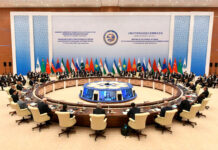KARACHI: On Thursday, the benchmark index of the Pakistan Stock Exchange (PSX) surpassed the 44,000 mark, experiencing a significant increase of over 600 points following a two-day decline. The KSE-100 index, as reported on the PSX website, closed at 44,178.85 points, reflecting a rise of 1.44% or 626.02 points.
Market analysts attributed the rally to several factors. Firstly, the standby agreement reached with the International Monetary Fund (IMF) played a pivotal role in boosting investor confidence. The agreement helped alleviate uncertainties, particularly the risk of default, providing Pakistan with a breathing space to focus on its fiscal policies.
Furthermore, payments made to independent power producers (IPP) also contributed to the market’s positive momentum. The government disbursed around Rs140 billion to the IPPs, allowing them to distribute higher dividends. This development resulted in a rally in the shares of these companies.
Additionally, the cement sector experienced a positive surge due to the international coal prices witnessing a decline. Lower coal prices benefit the cement industry, as coal is used as a fuel for cement production.
Market experts, such as Salman Naqvi, head of research at Aba Ali Habib Securities, expressed optimism about the market’s potential. Naqvi believed that the index could potentially reach 45,000 to 46,000 points. However, he cautioned that the rise would not be consistent, taking into account the recent slump experienced after a historic bull run on Monday.
Siddique Dalal, the CEO of Dalal Securities, also emphasized the impact of the IMF agreement on market sentiment. He anticipated fluctuations in the market and emphasized the significance of daily news updates in determining market trends.
The stock market witnessed a significant gain on Monday when Pakistan secured a $3 billion short-term financial package from the IMF. This package provided relief to the country’s struggling economy, which was facing a severe balance of payments crisis and dwindling foreign exchange reserves. The funding, spread over nine months, exceeded expectations and provided respite to Pakistan as it awaited the release of the remaining funds from a previous bailout package agreed upon in 2019. The IMF board was set to approve the deal in July.
























